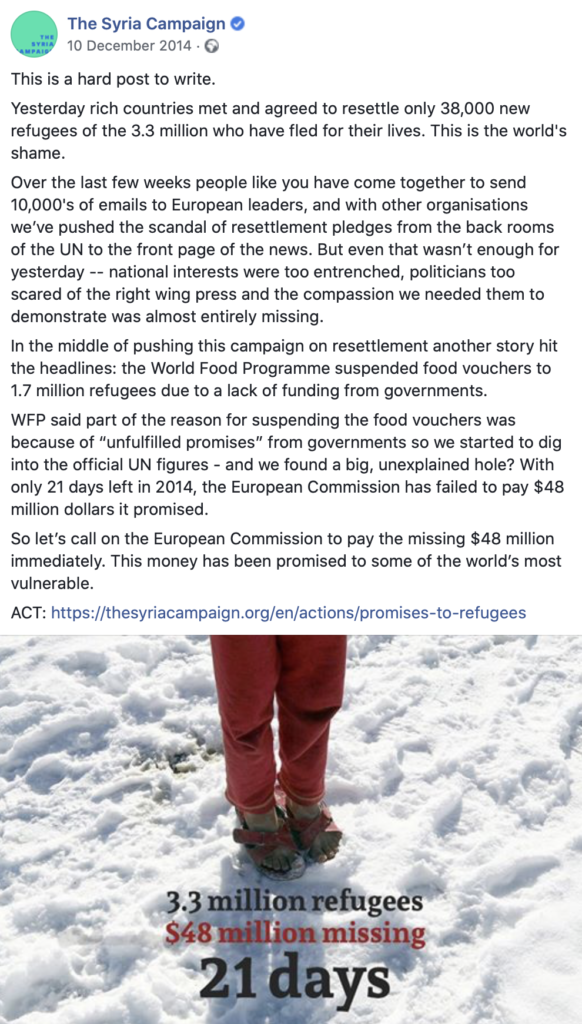“We failed”
Campaigns don’t always result in wins, particularly when they’re targeted at international governments with their own agendas and alliances. Sometimes it’s important to acknowledge the campaigns that didn’t succeed, in order to highlight an area of continued concern, show transparency and allow ourselves to be vulnerable with our supporters.

At the end of 2014, The Syria Campaign sent an email with the subject line: “We didn’t win. Here’s what’s next.” The message came after an email campaign we ran failed to convince EU governments to take in more Syrian refugees. Despite thousands of people writing to their governments to ask them to do more and despite the story being reported by the media, the EU agreed to only take 1% of the total number of Syrian refugees in need of resettlement. The New York Times’ editorial board noted: “In Europe, which has more of a tradition of offering refuge to those fleeing conflict, only Germany and Sweden have responded in a generous way. Other European countries—Britain, France, Italy, Spain and Portugal—have fallen far short.” The paper went on to say: “Most Syrians, hoping one day to return to their country, will not choose to leave the region. But some of them wish to get on with building new lives and would like to leave. World leaders should listen to their pleas.”
But our email didn’t just focus on the international community’s collective failure to resettle Syrian refugees. It also pointed out that while the debate around refugees was occurring, the World Food Programme had suspended food vouchers to 1.7 million people due to a funding gap. We investigated and found, with the help of other organisations, that the EU had failed to pay the $48 million it owed the programme. After five days of silence from the European Commission about the missing money, we called on our supporters to email the bloc, and push them to supply the funds. After applying this pressure, we were told by the EU that the money had been committed.
What we learnt
Don’t be afraid to admit when things fail, but provide a positive action at the end to turn disappointment into hope.